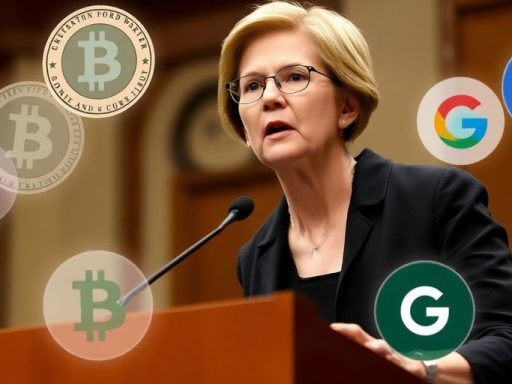Wall Street giant BlackRock recently engaged in discussions with the Securities and Exchange Commission (SEC) Crypto Task Force, focusing on the potential for staking within crypto exchange-traded products (ETPs) and the tokenization of securities. This meeting marks a significant step towards enhancing institutional interest in the cryptocurrency sector.
Key Takeaways
- BlackRock is advocating for staking capabilities in Ether ETFs.
- The SEC is considering rule changes that could facilitate staking for crypto ETPs.
- Tokenization of securities was also a major topic, highlighting its benefits over traditional finance.
- BlackRock’s BUIDL fund is currently the largest tokenized fund in the U.S.
The Importance of Staking in Ether ETFs
Staking has emerged as a pivotal topic in the cryptocurrency landscape, particularly for Ether ETFs. BlackRock’s discussions with the SEC centered around the treatment of staking, which allows users to lock their Ether (ETH) for yield. The company has previously indicated that while Ether ETFs have been successful, they could be significantly improved with the inclusion of staking functionalities.
Other major players in the crypto ETF space, such as Grayscale and Fidelity, have also filed for rule changes to enable staking. The New York Stock Exchange proposed a rule change on February 15 to introduce staking services for Grayscale’s spot Ether ETFs. However, the SEC has delayed its decision on this proposal, leaving the future of staking in Ether ETFs uncertain.
The Future of Tokenization
In addition to staking, BlackRock discussed the tokenization of securities under the federal regulatory framework. Tokenization refers to the process of converting rights to an asset into a digital token on a blockchain. This innovation offers numerous advantages, including:
- Faster Settlement Times: Transactions can be completed in real-time, reducing the time it takes to settle trades.
- Lower Costs: Tokenization can significantly reduce the costs associated with traditional financial infrastructure.
- 24-Hour Markets: Unlike traditional markets, tokenized securities can be traded around the clock.
BlackRock has already made strides in this area with its tokenized fund, BUIDL, which boasts a market capitalization of $2.9 billion. Competing products, such as Franklin Templeton’s BENJI fund, are also entering the market, indicating a growing interest in tokenized securities.
Broader Implications for the Crypto Market
The potential approval of staking for Ether ETFs could pave the way for similar requests involving other altcoins, such as Solana (SOL). As the SEC continues to evaluate these proposals, the outcome could significantly influence the landscape of cryptocurrency investments and the adoption of blockchain technology in traditional finance.
Brokerage firms like Robinhood are also exploring the tokenization of securities, aiming to create a blockchain that would enable retail investors in Europe to trade U.S. stocks. This move reflects a broader trend towards integrating blockchain technology into mainstream finance, potentially revolutionizing how securities are traded and managed.
As discussions between BlackRock and the SEC continue, the outcomes could have lasting effects on the cryptocurrency market, institutional investment strategies, and the future of financial technology.








